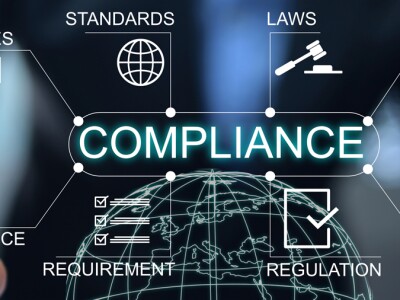Pitt Law Online Blog
Get insights into the Online MSL and certificate programs with the Pitt Law blog. Gain a better understanding of the evolving laws and regulations that govern business with information, advice and thought leadership from the experts at the University of Pittsburgh School of Law.
Discover how to create a compliance management system with clear steps that ensure accountability, minimize risk, and drive business credibility.
Learn the key corporate compliance laws and regulations every organization should understand. Stay compliant and protect your business from penalties.
Learn about the responsibilities of a health care compliance officer and how they ensure patient and organizational safety.
Explore the fundamentals of HR law. Discover key regulations, rights, and responsibilities that govern workplace relationships and ensure fair practice.
Discover how compliance management builds trust and credibility. Learn its impact on ethics, risk reduction, and lasting business relationships.
Discover 10 vital HR policies covering discrimination, wages, remote work, data privacy, and more. Get your business compliant today.
International trading helps to drive economic development for countries and companies. Trading across borders is a complex process that is regulated by many laws.
Discover what corporate governance means, why it’s essential for business success, and how it impacts compliance, leadership, and long-term growth.
Learn how to navigate cultural differences in business with practical tips, real examples, and strategies for cross-cultural communication.
Learn essential HR compliance concepts tailored for non-HR professionals. Equip yourself with the knowledge to navigate regulations effectively.










